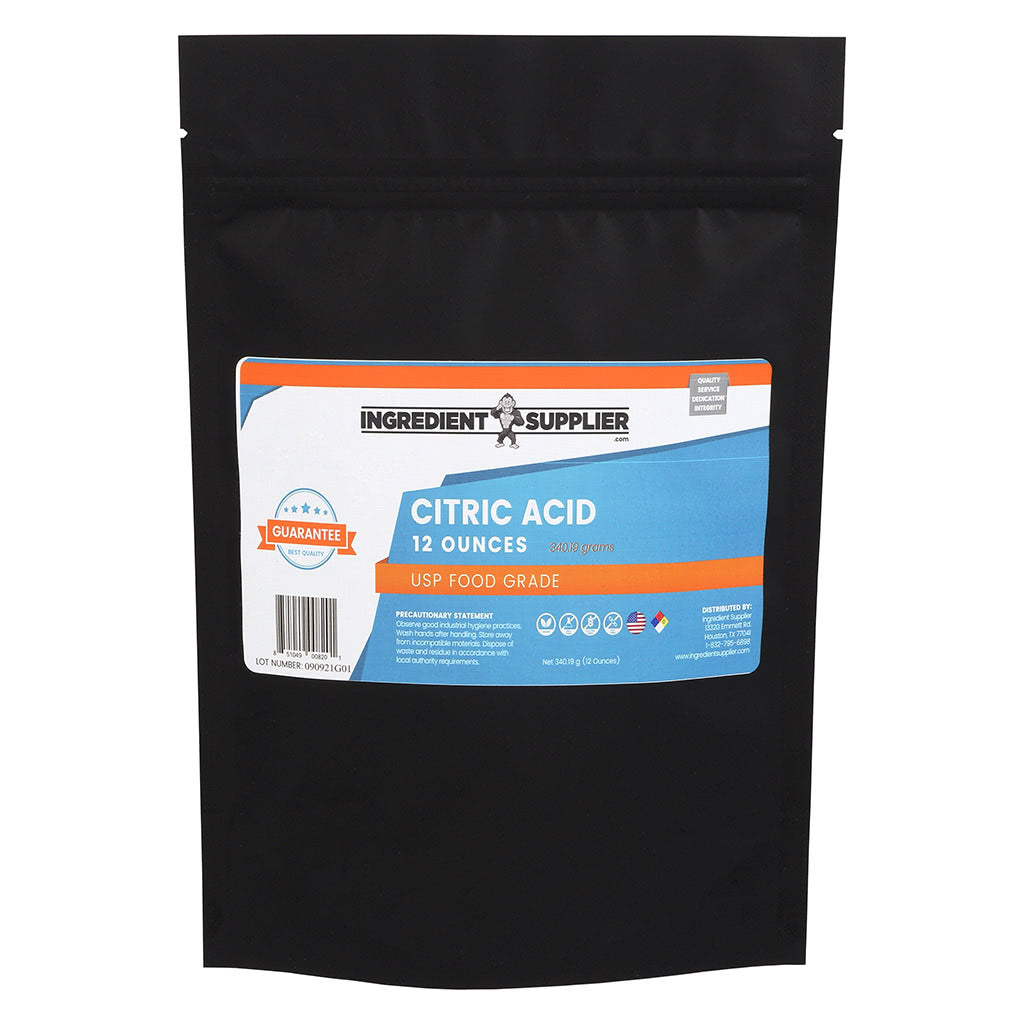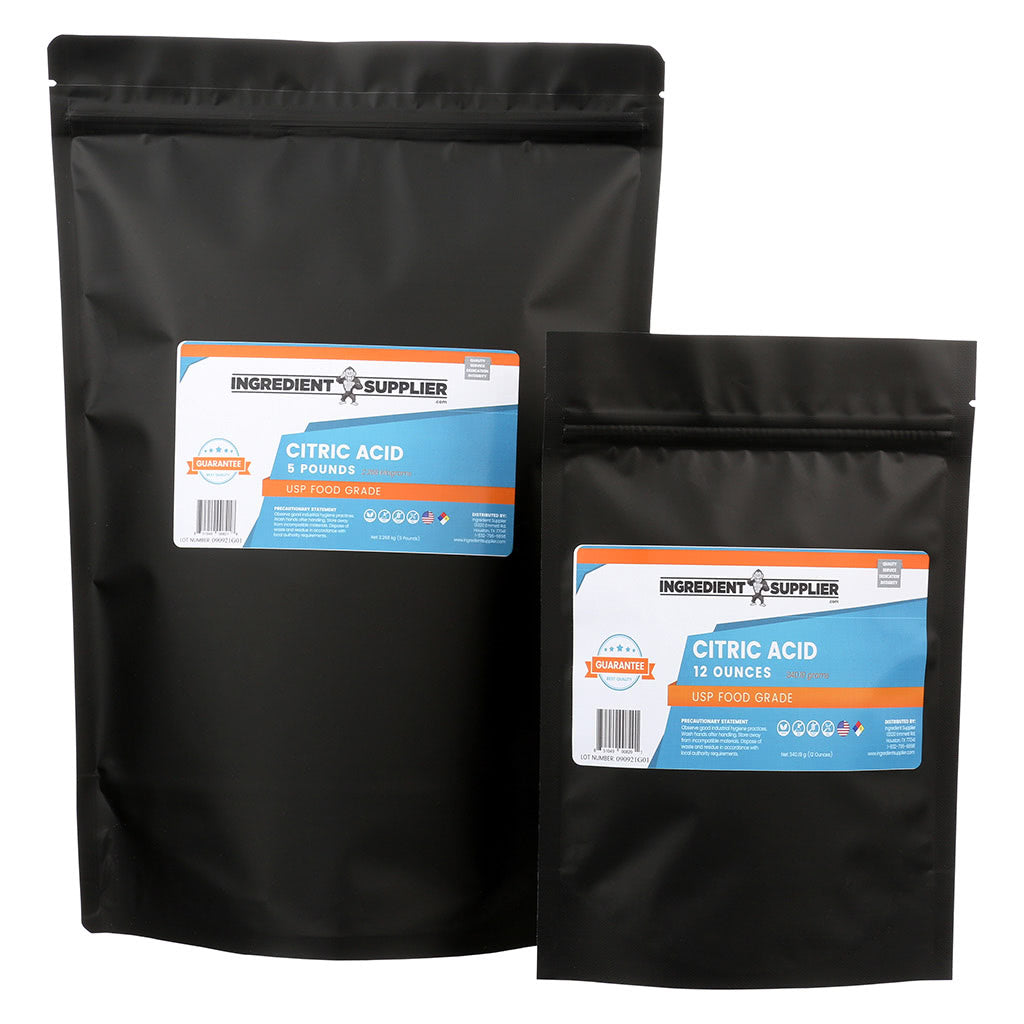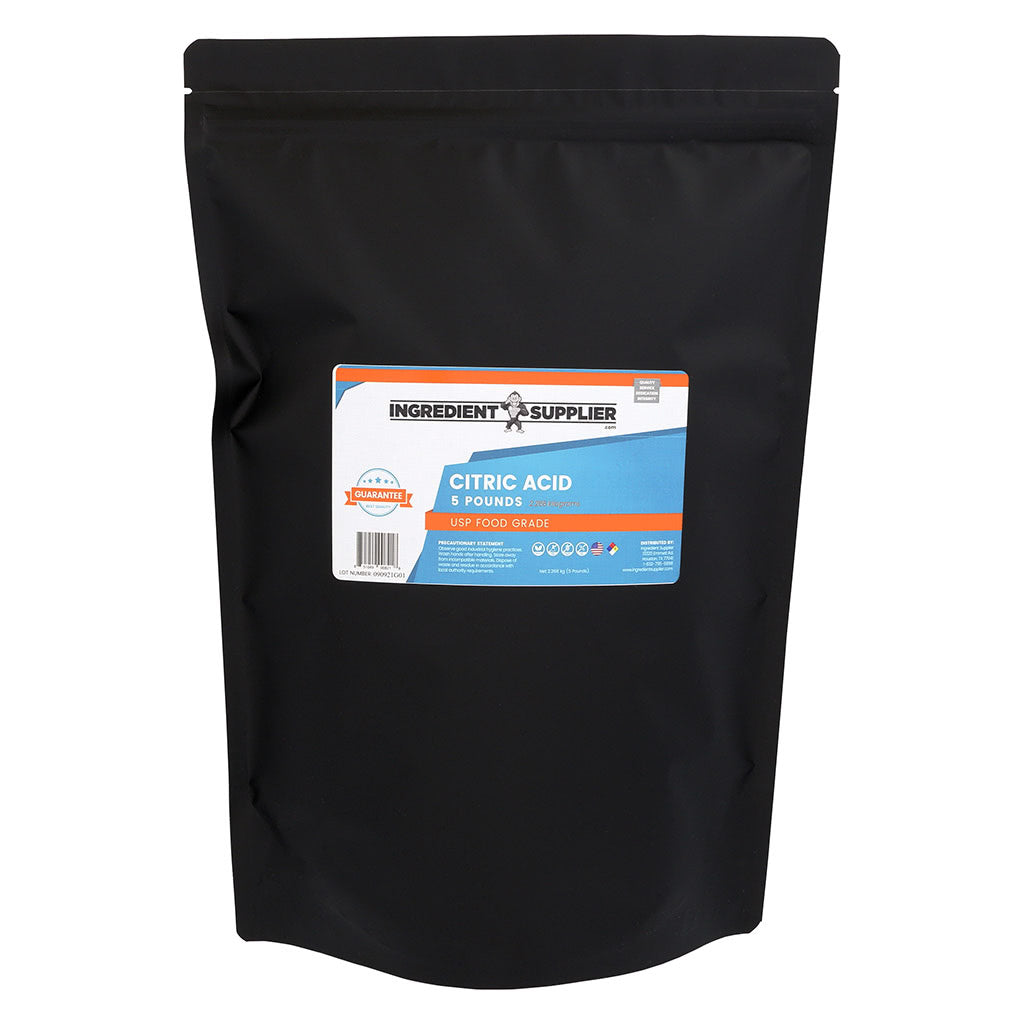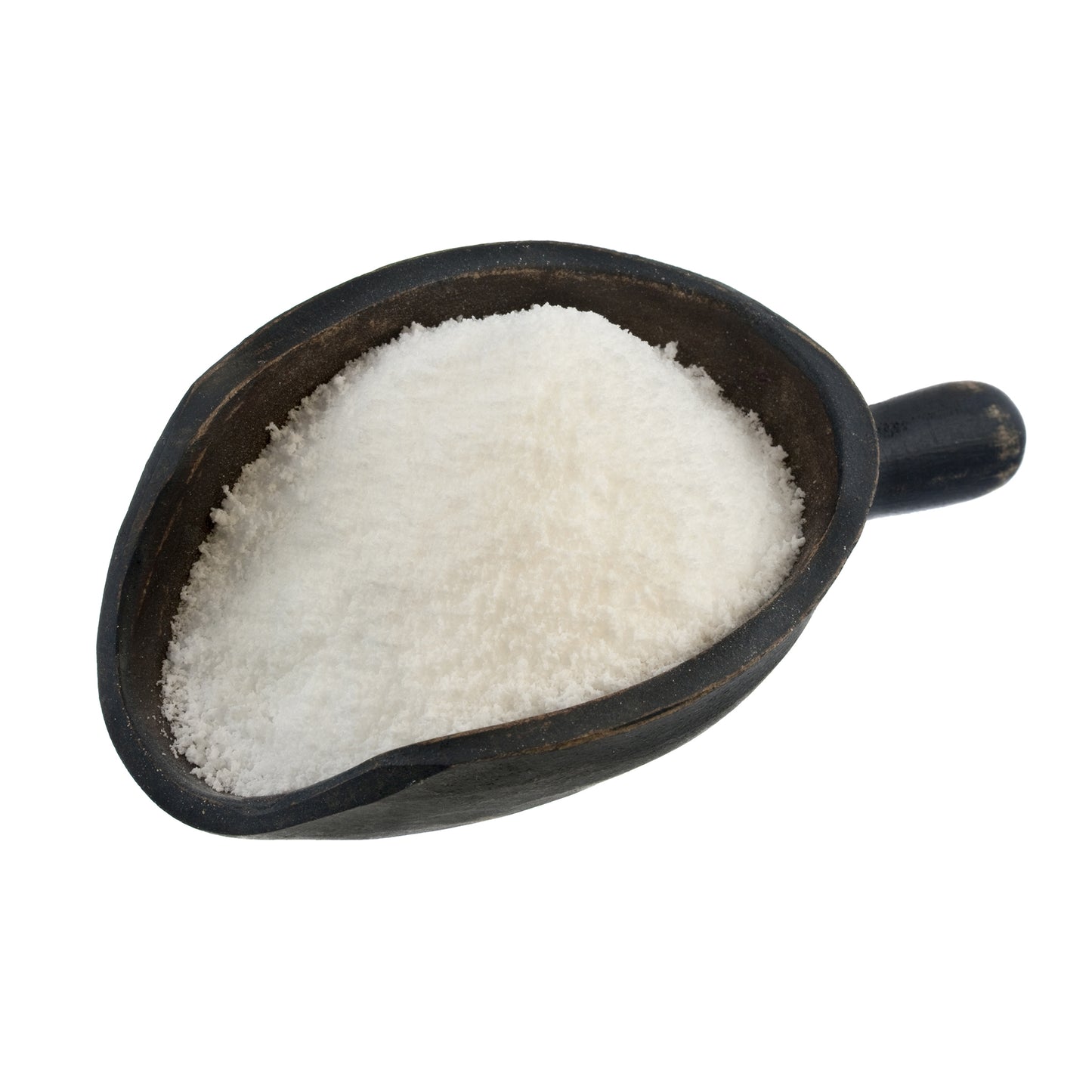Ingredient Supplier
Couldn't load pickup availability




Download SDS
What is Citric Acid?
Citric Acid is an alpha-hydroxy-acid (AHA), or weak organic acid, most commonly found in citrus fruits. It occurs naturally, and is also synthetically added to food and other products. Due to its long shelf life and affordability, Citric Acid is a staple for many industries. Citric Acid will last up to three years once it is opened, and up to five years unopened.
Citric Acid is popular due to its variety of uses, including presentation, flavoring, and emulsifying. It is one of the most common food additives on the market, as adding it to canned, jarred, and even frozen foods can help prevent botulism and other bacteria.
When sold commercially, such as in grocery stores, it is sold as a dry, white powder that bears resemblance to table salt. Some even refer to Citric Acid as “sour salt.”
Citric Acid is vegan, dairy free, and gluten free, and can even be used to substitute for salt in certain recipes, for those watching their sodium intake.
How is Citric Acid Made?
While Citric Acid can be obtained from citrus fruits, over 90% of the commercially produced Citric Acid comes from a metabolized sugar that results from Aspergillus niger, or black mold. It was discovered in the early 1900s by American chemist James Currie.
While the idea of a food product coming from black mold can seem highly unappetizing, the process of obtaining the Citric Acid renders the mold completely separate from the final product. The mold is fed sugar, often through either corn starch or molasses, and the mold is filtered out. Once the mold is filtered out, calcium hydroxide is added, which results in calcium citrate salt. Citric Acid is obtained by treating the calcium citrate salt with sulfuric acid. The demand for Citric Acid globally is too high for it to only come from citrus fruits, and using this process, scientists are able to produce an almost unlimited supply of Citric Acid.
Benefits & Uses of Citric Acid
Citric Acid has many uses, some of them include:
-
Food & Drinks
Citric Acid occurs naturally in citrus fruits, like oranges, lemons, limes, grapefruits, tangerines and pomelos. Other fruits like pineapple, strawberries, raspberries, cranberries, and cherries also contain Citric Acid but in smaller amounts.
Citric acid can be used to add sour flavoring, however it is more commonly used as a preservation agent. It can also be used as a replacement for lemon juice or vinegar, particularly when one needs to add a sour flavor without other flavor (such as vinegar), or sour without liquid and additional moisture. As an emulsifier, Citric Acid can be useful in helping products like ice cream stay solidly mixed.
Citric Acid is a staple item in vegan baking, as it helps to create leavened breads where eggs and milk are unable to be used.
A sprinkle of Citric Acid can help keep foods that oxidize quickly, like avocados or apples, from turning brown.
Other food products that contain Citric Acid include ketchup, spda, juice, powdered beverages, candies, and frozen foods. A large portion of the world’s Citric Acid production is used as a flavor booster in beverages. -
Cosmetics
Citric Acid is used in a variety of makeup products, including anti-aging creams and skin peels, as it can brighten skin, minimize fine lines, clear acne, clear clogged pores, and even skin tone. Citric Acid is used in cosmetic and skin care products that exfoliate, as it promotes skin cell turnover and is a source of antioxidants that can challenge some of the damage done by the sun. It can be especially beneficial for those with more oil-prone skin. Citric Acid also has a pH level that makes it a strong skin pH balancer. However, products with Citric Acid can make skin more sensitive to sun, so it is important to use a high-quality SPF when using products containing Citric Acid.
Additionally, Citric Acid is a key ingredient in many bath products, including bath bombs. Hair dyes and detergents also utilize Citric Acid in their formulas, as the use of Citric Acid can help keep personal care products from growing mold, bacteria or fungus. -
Household Cleaners
Citric Acid plays a large role in household cleaners due to its ability to remove rust and hard water stains, and function as an anti-bacterial. Citric Acid cleaners are even known to be able to remove coffee and wine stains.
Many use Citric Acid in their dishwasher for cleaner dishes. It can also be used in various other cleaners: auto, metal, oven, all-purpose, soap scum, bathroom, carpet, dish soap, laundry soap, and stain removers.In particular, cleaners with Citric Acid have been found to help prevent spread of the gastrointestinal norovirus. -
Medical
Citric Acid is used in certain medications and is often included in certain dietary supplements. Citric Acid has a mineral-binding property that helps prevent kidney stones from forming, and can also lower the body’s acid levels to prevent gout. As an emulsifier, Citric Acid can be used in medications and supplements to preserve active ingredients and to enhance absorption.
Dosage, Safety & Side Effects
The Environmental Protection Agency (EPA) has found Citric Acid to be generally recognized as safe, as it occurs in nature and is biodegradable, with minimal environmental impact. Citric Acid can be considered a safer and more sustainable cleaning option in places where chlorine bleach is used.
The United States Department of Agriculture (USDA) and Federal Drug Association (FDA) have found Citric Acid to be generally recognized as safe. When consumed, only a small amount of the Citric Acid additive is absorbed by the liver, making any possible negative effects very minimal. If a person consumes a product high in Citric Acid, it is important to rinse and brush one’s teeth due to the potential damage Citric Acid can do to tooth enamel, as well as the gums. It is also recommended to avoid inhaling Citric Acid and avoiding getting it in your eyes. Citric Acid is linked to improved nutrient absorption, improved bone health, increased energy/lowered fatigue, and anti-inflammatory properties.




